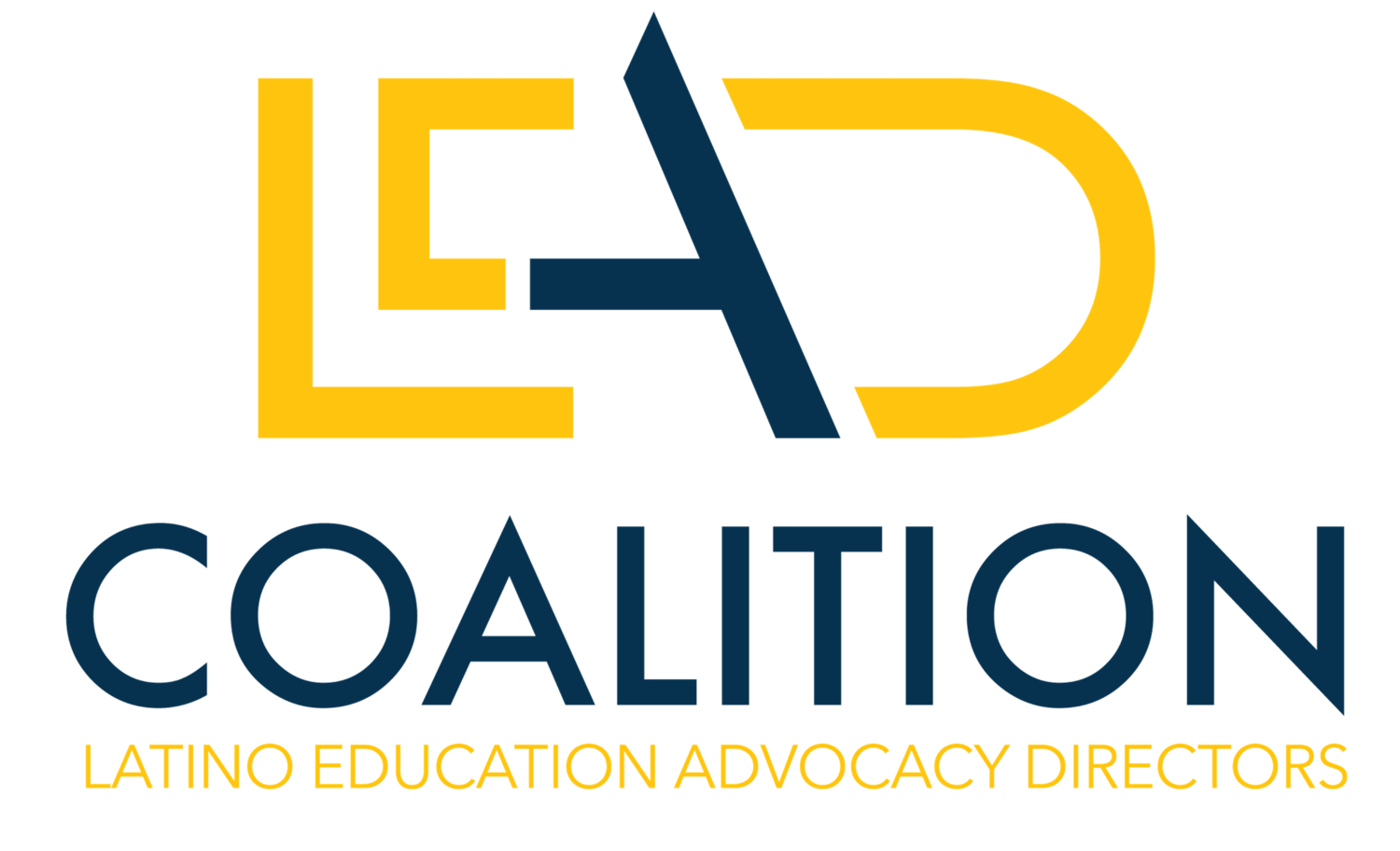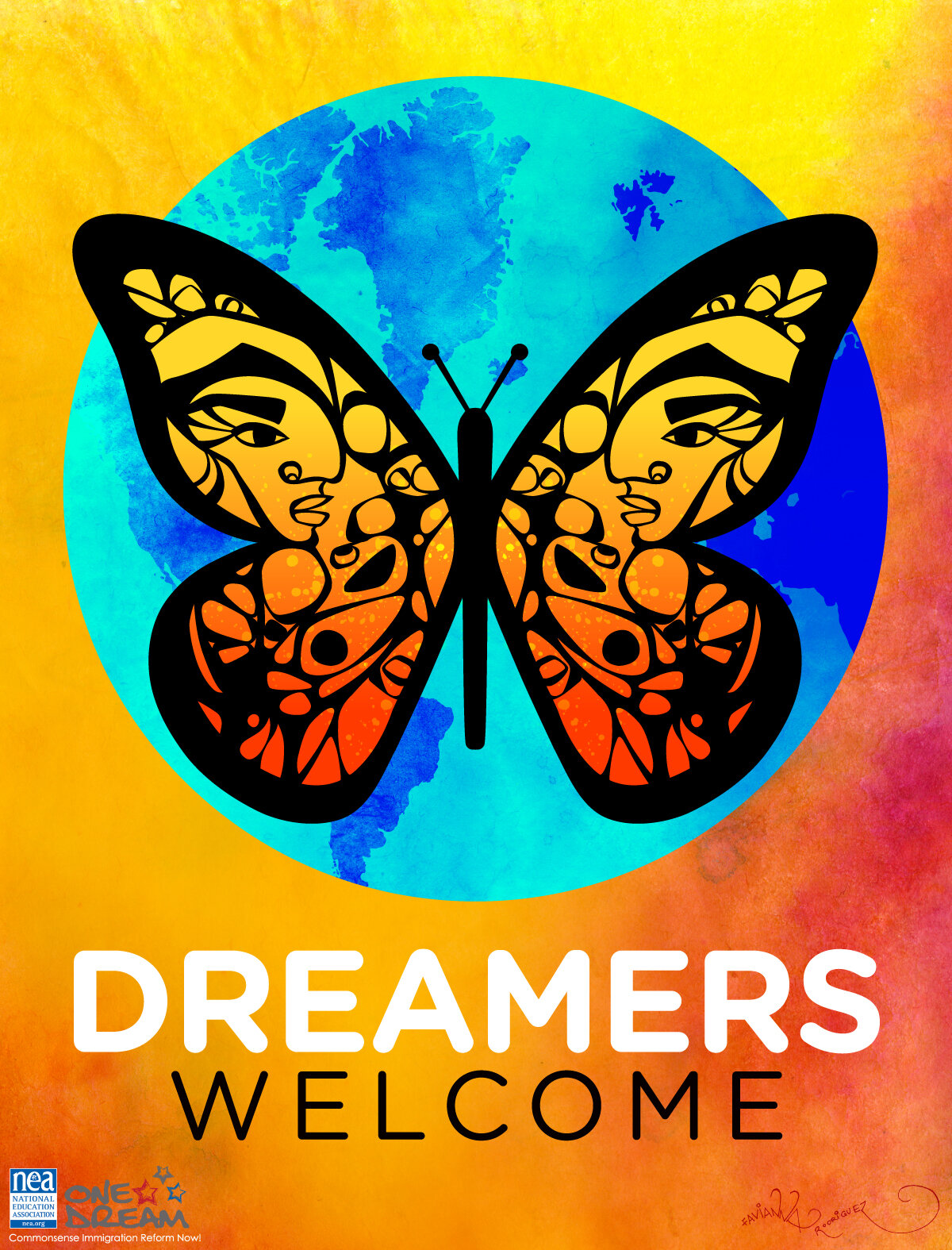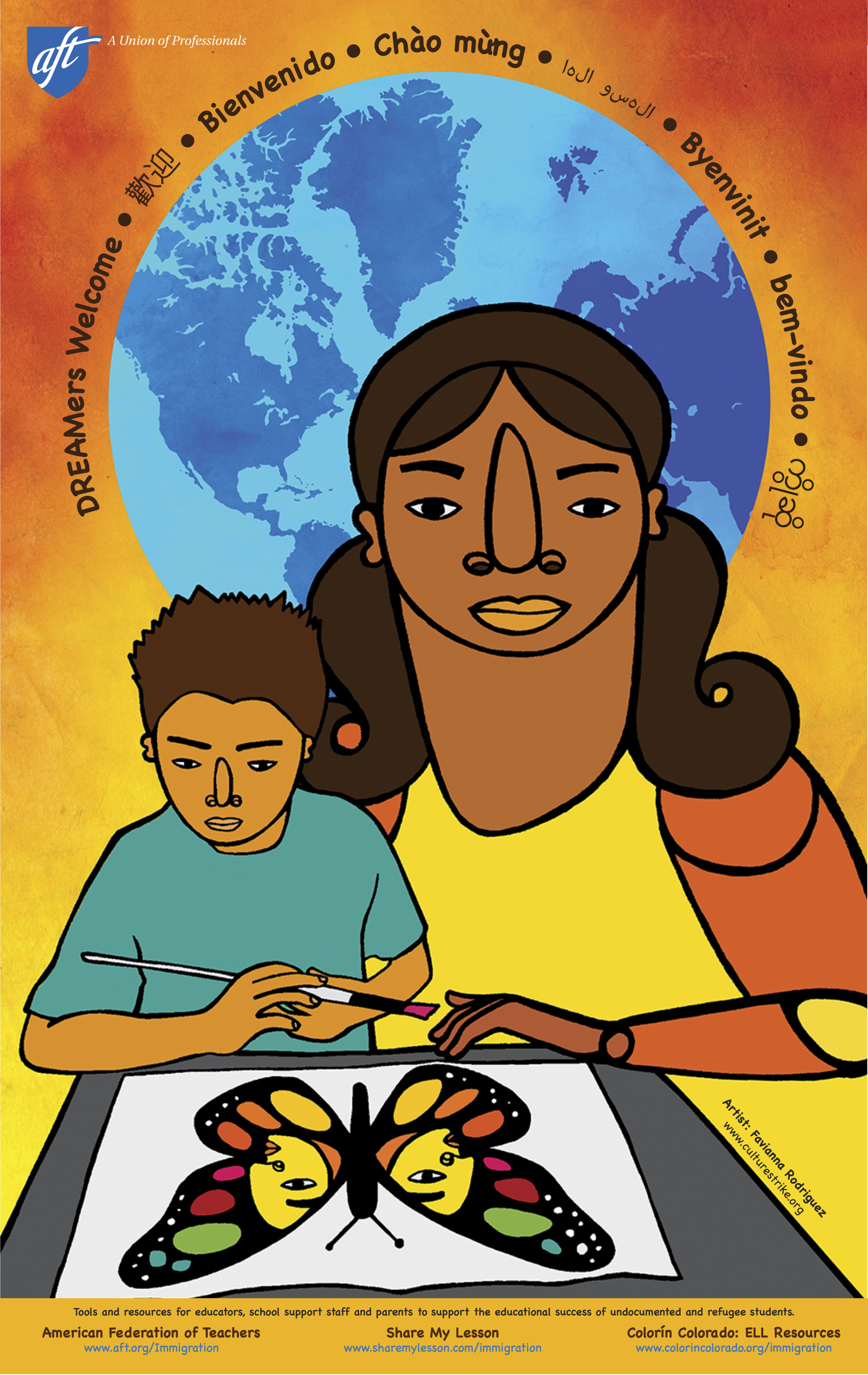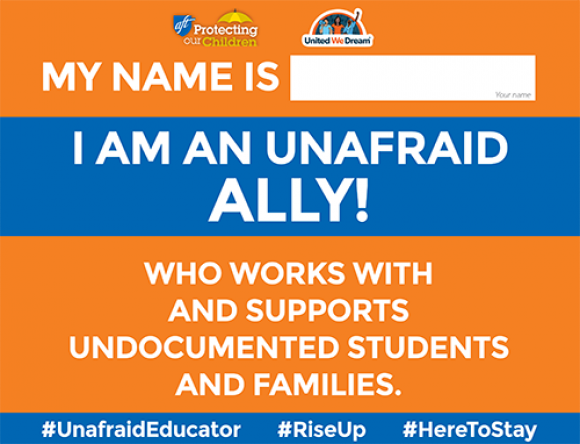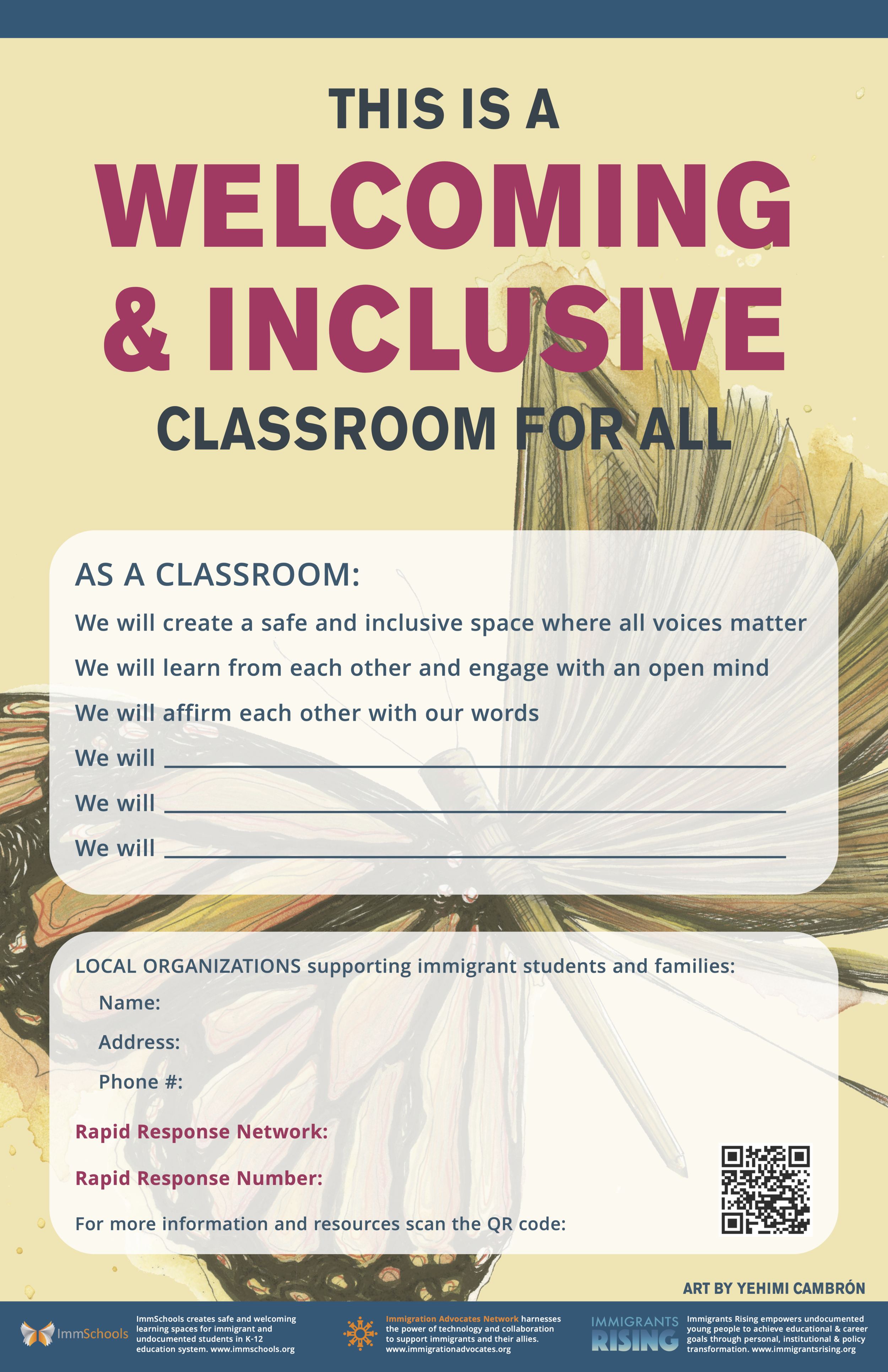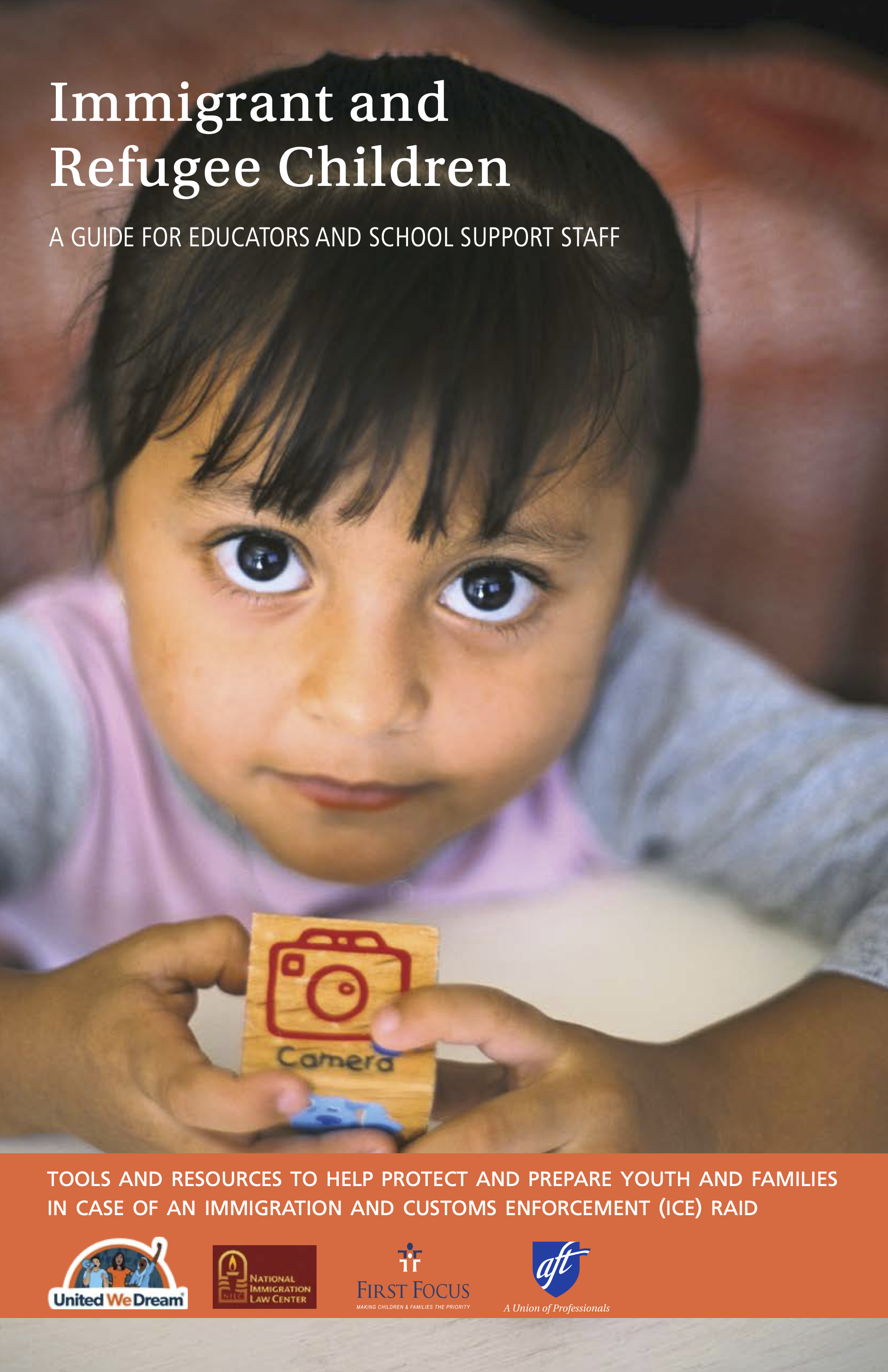Ways Counselors and Educators Can Help Undocumented Students Succeed
“School counselors are critical in providing services to undocumented students. They are the main individuals who will have the necessary skills to attend to the academic, socio-emotional, and [post secondary success] services given to undocumented immigrant families and children.” School Counselors Working With Undocumented Students, ACA Knowledge Center (2016).
We have put together the following information and resources to help counselors and educators better serve their undocumented students and mixed status families.
What It Means To Be Undocumented
Definition: An individual who lacks the documents for immigration or legal residence. These individuals may have:
Entered the country legally on a temporary basis and stayed after documents expired.
Entered without documents or with false documents.
Been brought to the country by someone else.
The psychological impacts of immigration status:
Constant fear of deportation (whether their own deportation or deportation of loved ones).
Secrecy and trust.
Higher levels of stress due to financial barriers.
Anxiety about the future .
Unprecedentedly high occurrences of depression, anxiety, substance use/abuse, and suicidal ideation.
Undocumented students need:
Compassion
Support
Recognition
Financial assistance
Safe spaces
Empowerment
Opportunities
Respect
Being Undocumented in School
Many undocumented students experience discrimination and prejudice from high school and college faculty and staff, either due to ignorance or personal biases. However, students who succeed in higher education credit high school and college agents for their encouragement and guidance.
What language to use when talking about undocumented students
LANGUAGE MATTERS
DO NOT use the term ILLEGAL.
This term has a negative connotation that demonizes and dehumanizes undocumented students.
Proper and acceptable terminology:
Undocumented.
Dreamer—youth who would benefit from DREAM Acts.
DACA—student with DACA Status.
Best Practices When Counseling Undocumented Students
Create a safe environment for students: Many undocumented students have been taught from the time they are little to keep this information to themselves.
Don’t ask undocumented students to self-identify.
Use the proper terminology when speaking about undocumented students.
Make resources easily available for all students.
Spread the word among the student population that you provide a safe place.
Do all you can do identify yourself as an ally/supporter: Educate yourself on what it means to be an ally, how to become an ally, and how to respond to students who reveal their status to you. See Undocumented Ally Training and Resources.
Use posters, bookmarks, and stickers to make your support visible!
Help undocumented students access resources:
Reach out to ESOL and Bilingual teachers to help you connect with undocumented and other status students.
Revise any existing presentations to include the terms: citizens, permanent residents and undocumented students.
Know Relevant Policies and Legislation:
Understand college-specific admissions and enrollment policies for undocumented students
Be aware of what is available at the state and local levels to assist undocumented students.
Build a Support Network: Connect undocumented students with people you know and trust.
Identify mentors and tutors.
Identify allies, advocates, and sponsors.
Identify role models such as older undocumented students.
Provide Hope and Encouragement: Reassure undocumented students that college is possible despite the obstacles.
Involve Parents:
Educate parents about why undocumented students should pursue college.
Encourage good communication between children and parents.
Invite parents into the college application and enrollment process.
See NYC Department of Education Supporting Immigrant Families.
Educate your Colleagues
Teach your colleagues on the best practices to help undocumented students and their families.
Encourage your colleagues to include the proper citizenship terms (citizen, permanent resident, and undocumented) in their presentations and within their classroom instructions to normalize the language and educate students.
If you have colleagues who are or you suspect to have or support the anti-immigrant ideology, do not collect or write down the names of the students who self-identify their status to you. If you do create a list, be mindful of where you store it.
Seek wellness for yourself.
Assisting undocumented students may be complex and disheartening at times. With the hundreds of students you are responsible for, as a social justice advocate, compassion fatigue may impact your ability to provide each student with the counseling they need.
Seek help from community agencies who also support undocumented students!
THINGS TO CONSIDER WHEN HELPING AN UNDOCUMENTED STUDENT CHOOSE A COLLEGE:
Friendly versus unfriendly states
Travel restrictions
Campus climate
Knowledgeable admission staff
Support on campus (student activities, residence life, counseling center, career development)
College costs and aid opportunities
Do not assume community college is the only option!
RESOURCES TO HELP UNDOCUMENTED STUDENTS AND FAMILIES in case of an ice raid
If ICE Raids your community, do you know how to help your students and their families? See these resources to understand your role in ensuring these communities remain safe.
IMMIGRANT AND REFUGEE CHILDREN: A GUIDE FOR EDUCATORS AND SCHOOL SUPPORT STAFF—Tools and resources to help protect and prepare youth and families in case of an Immigration and Customs Enforcement (ICE) raid.
This pamphlet even includes a handout for parents of their rights if ICE comes knocking on their doors.
10 strategies for how school should respond to and help children impacted by ICE raids (also available in Spanish).
This flyer provides important strategies and plans of action to help schools prepare for the unnerving ramifications of an ICE raid in their community.
One side is in English the other in Spanish.
